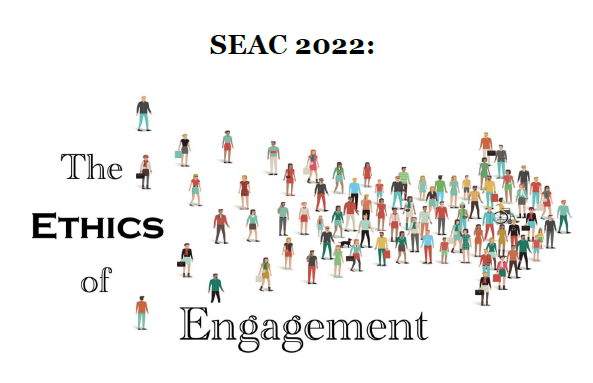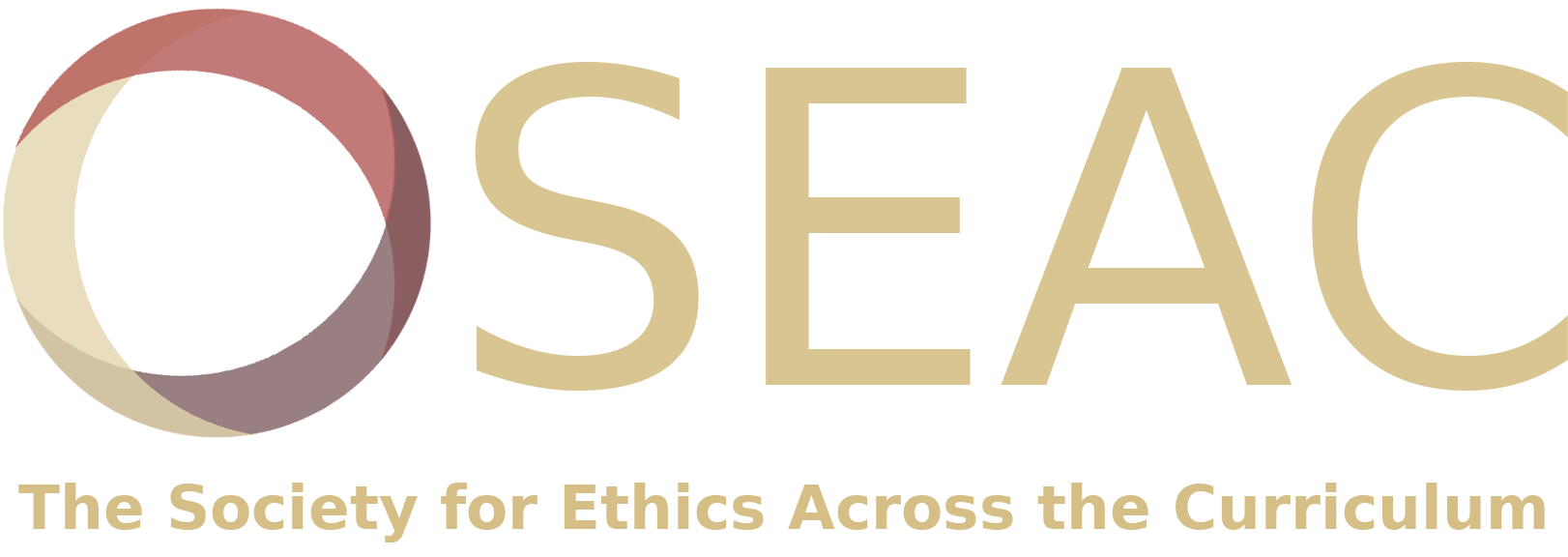
Concurrent Session 6C
Location
C: Room 207 (Bryant Hall, second floor)
Start Date
8-10-2022 8:30 AM
End Date
8-10-2022 10:15 AM
Description
- The Viability of Using Shelley's Frankenstein to Teach Ethics Across the Curriculum / Josef Mendoza, Montclair State University
To commemorate the 200th Anniversary of the publication of Mary Shelley's Frankenstein (1818), an introductory philosophy course curriculum was designed and taught in 2018 that reached across disciplines and focused on Shelley's narrative segments that illustrate both classical and contemporary ethical theories, metaphysics, and epistemology. Students were assigned readings and audiobook selections to engage with the inaugural genre of science fiction. Supplemental readings and audio OER texts concerned with the Mind-Body Problem (Descartes), Virtue Ethics (Aristotle), Kant’s Pragmatic Imperative, What Utilitarianism Is (Mill), and Feminist Moral Theory (Held; Noddings) were also used to ground an understanding of Shelley’s unconventional approach to ethics and moral decadence. Previously, self-directed and transformational learning theories framed analyses of Shelley’s fictional adults showing the need for ‘narrative exchange’ as a growth technique supporting self-realization and prospective identity adaptations suitable to social and career changes resulting from training, new skills acquisition, and advanced education. This paper concentrates on ethical representations of (i) the secular Virtue Ethics of Aristotle, (ii) themes of Christian morality, (iii) Kantian Justice Ethics, (iv) Utilitarian Consequence Ethics, and (v) a Feminist Ethic of Care as depicted in Shelley’s novel. The goal of my presentation is to show the viability of using Shelley’s Frankenstein novel to teach ethics across the curriculum as it relates to interpersonal, civic, institutional, and community engagement. - Case Study: EthicsLab: Community Moral Engagement and Dialog / David Schwan, Central Washington University
The EthicsLab is a public-facing practical ethics initiative housed in the College of Arts and Humanities at Central Washington University (CWU). The Lab seeks to promote critical thinking, ethical reflection, and to facilitate improved communication on moral problems in the region. In 2020-2021 the Lab hosted public discussions on racial justice, propaganda and social media, responses to the pandemic, the ethics of protest, bias in artificial intelligence, and civil dialog. Presently the Lab is working with community collaborators to support two projects. The first is the Good Life community discussion series (a collaboration with Ellensburg Public Library and Hal Homes Community Center) which focuses on what it means to be human and live well. Topics include happiness, meaningful activity, technology, community, work, and family. The purpose of this project is to provide a new community space for civil discussion and to cultivate civic friendships among diverse constituents in the community. The second project is Moral Perception Workshops. These feature practical tools and methods from the humanities and social sciences to foster understanding and communicate across moral differences. Our first workshop was titled ‘Better Moral Disagreement’ and we will hold two workshops on improving moral dialog in May 2022. Each of these projects is designed to strengthen and promote democratic virtues, provide space for education and productive discussion, and provide members of the campus, community, and region with tools and techniques for improved moral dialog and civic engagement. - Ethics and Everyday Policing: Engaging Cases from an Interdisciplinary Learning Community / Gerald J. Erion, Medaille College; Brian K. Patterson, Niagara Frontier Transportation Authority
For the past four years, the Applied Ethics in Criminal Justice (AECJ) project has developed and piloted an ethics-across-the-curriculum model at Medaille College in Buffalo, NY. This model was designed to offer students multiple opportunities to apply ethical theories to meaningful real-world problems in their chosen field of criminal justice across a full academic year. As one part of the AECJ project, our team planned and implemented a paired-course learning community during the Fall 2021 semester linking CRJ 211 Law Enforcement and PHI 310 Ethics with Criminal Justice Applications. Building from a presentation at last year's SEAC conference, this panel paper proposes to share goals, experiences, and lessons learned from two key features of the AECJ learning community: [1] its reflection and discussion activities built around everyday policing applications, and; [2] its novel final project weaving together student research from both classes. These elements aim to boost student engagement with lively and significant applied ethics cases, and the AECJ team remains eager for feedback and insights from SEAC as we continue to develop our pilot as a permanent and distinguishing feature of Medaille's criminal justice curriculum.
Session Chair: John Uglietta, Grand Valley State University
Relational Format
conference proceeding
Recommended Citation
Mendoza, Josef; Schwan, David; Erion, Gerald J.; Patterson, Brian K.; and Uglietta, John, "Concurrent Session 6C" (2022). Society for Ethics Across the Curriculum Conference. 40.
https://egrove.olemiss.edu/seac/2022/schedule/40
COinS
Oct 8th, 8:30 AM
Oct 8th, 10:15 AM
Concurrent Session 6C
C: Room 207 (Bryant Hall, second floor)
- The Viability of Using Shelley's Frankenstein to Teach Ethics Across the Curriculum / Josef Mendoza, Montclair State University
To commemorate the 200th Anniversary of the publication of Mary Shelley's Frankenstein (1818), an introductory philosophy course curriculum was designed and taught in 2018 that reached across disciplines and focused on Shelley's narrative segments that illustrate both classical and contemporary ethical theories, metaphysics, and epistemology. Students were assigned readings and audiobook selections to engage with the inaugural genre of science fiction. Supplemental readings and audio OER texts concerned with the Mind-Body Problem (Descartes), Virtue Ethics (Aristotle), Kant’s Pragmatic Imperative, What Utilitarianism Is (Mill), and Feminist Moral Theory (Held; Noddings) were also used to ground an understanding of Shelley’s unconventional approach to ethics and moral decadence. Previously, self-directed and transformational learning theories framed analyses of Shelley’s fictional adults showing the need for ‘narrative exchange’ as a growth technique supporting self-realization and prospective identity adaptations suitable to social and career changes resulting from training, new skills acquisition, and advanced education. This paper concentrates on ethical representations of (i) the secular Virtue Ethics of Aristotle, (ii) themes of Christian morality, (iii) Kantian Justice Ethics, (iv) Utilitarian Consequence Ethics, and (v) a Feminist Ethic of Care as depicted in Shelley’s novel. The goal of my presentation is to show the viability of using Shelley’s Frankenstein novel to teach ethics across the curriculum as it relates to interpersonal, civic, institutional, and community engagement. - Case Study: EthicsLab: Community Moral Engagement and Dialog / David Schwan, Central Washington University
The EthicsLab is a public-facing practical ethics initiative housed in the College of Arts and Humanities at Central Washington University (CWU). The Lab seeks to promote critical thinking, ethical reflection, and to facilitate improved communication on moral problems in the region. In 2020-2021 the Lab hosted public discussions on racial justice, propaganda and social media, responses to the pandemic, the ethics of protest, bias in artificial intelligence, and civil dialog. Presently the Lab is working with community collaborators to support two projects. The first is the Good Life community discussion series (a collaboration with Ellensburg Public Library and Hal Homes Community Center) which focuses on what it means to be human and live well. Topics include happiness, meaningful activity, technology, community, work, and family. The purpose of this project is to provide a new community space for civil discussion and to cultivate civic friendships among diverse constituents in the community. The second project is Moral Perception Workshops. These feature practical tools and methods from the humanities and social sciences to foster understanding and communicate across moral differences. Our first workshop was titled ‘Better Moral Disagreement’ and we will hold two workshops on improving moral dialog in May 2022. Each of these projects is designed to strengthen and promote democratic virtues, provide space for education and productive discussion, and provide members of the campus, community, and region with tools and techniques for improved moral dialog and civic engagement. - Ethics and Everyday Policing: Engaging Cases from an Interdisciplinary Learning Community / Gerald J. Erion, Medaille College; Brian K. Patterson, Niagara Frontier Transportation Authority
For the past four years, the Applied Ethics in Criminal Justice (AECJ) project has developed and piloted an ethics-across-the-curriculum model at Medaille College in Buffalo, NY. This model was designed to offer students multiple opportunities to apply ethical theories to meaningful real-world problems in their chosen field of criminal justice across a full academic year. As one part of the AECJ project, our team planned and implemented a paired-course learning community during the Fall 2021 semester linking CRJ 211 Law Enforcement and PHI 310 Ethics with Criminal Justice Applications. Building from a presentation at last year's SEAC conference, this panel paper proposes to share goals, experiences, and lessons learned from two key features of the AECJ learning community: [1] its reflection and discussion activities built around everyday policing applications, and; [2] its novel final project weaving together student research from both classes. These elements aim to boost student engagement with lively and significant applied ethics cases, and the AECJ team remains eager for feedback and insights from SEAC as we continue to develop our pilot as a permanent and distinguishing feature of Medaille's criminal justice curriculum.
Session Chair: John Uglietta, Grand Valley State University


